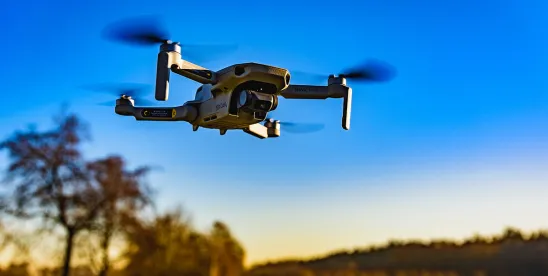While at first glance the Michigan Supreme Court case of Long Lake Township v. Maxon, appears to be a simple zoning dispute with a Fourth Amendment twist, the real impact of the case may ultimately fall on drones and air rights law, particularly the rights of landowners to exclude drones from flying in the airspace immediately above their land, and relatedly the ability of state and municipal governments to regulate such flights.
The history of the case is straightforward. When the Michigan municipality of Long Lake Township sought to enforce a zoning ordinance against Todd Maxon, Mr. Maxon asked the trial court to exclude all evidence obtained by flying a drone over Mr. Maxon’s land. After the trial court refused to exclude the evidence on the grounds that the photographs did not violate the Fourth Amendment, an appellate court ruled that the Fourth Amendment issue was irrelevant because a legal proceeding to enforce a local zoning ordinance is not required to exclude evidence obtained in violation of the Fourth Amendment (the requirement to exclude such evidence is known as the “exclusionary rule”).
Now, we await the Michigan Supreme Court’s decision as to whether the exclusionary rule applies, and if so, whether the use of the drone to inspect Mr. Maxon’s land for zoning compliance violated the Fourth Amendment’s prohibition of unreasonable searches.
A decision on that second question will center on landowners’ right to exclude drones from the airspace immediately above their land, because a warrantless search violates the Fourth Amendment if there is a reasonable expectation of privacy in the searched area that society recognizes as reasonable. It follows then, that, if a landowner has no legal right to exclude drones from flying over his or her land, then it would be inherently unreasonable to expect privacy in portions of their property that can be observed from such public drone flight paths above their land, as courts routinely rule that there cannot be a reasonable expectation of privacy in land that can be observed from adjacent, publicly-accessible space.
As drone technology developed from a curious, niche hobby into a potential billion-dollar business with the ability to change the way packages are delivered to our homes and offices, legal debates quickly followed about whether all airspace above the blades of the grass constitutes “publicly navigable airspace” that is beyond the control of the landowners below, or if those landowners maintain some residual control over some airspace above their land. A decision from the Michigan Supreme Court on this issue would be one of the highest level state or federal courts to confront this question.
Hopefully, the exclusionary rule will not prevent a thorough analysis of the issue, as its resolution will ultimately be necessary to confirm the permissibility of local government regulation of the time, place, and manner of drone flights, and landowners’ airspace control rights, and only when those questions are resolved will drone technology be able to fully flourish in the United States as part of a legal regime that acknowledges and respects the traditional property rights of landowners.




 />i
/>i

